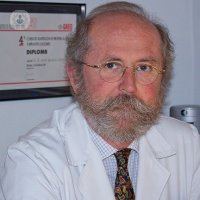Vertigo, a feeling of movement
Written by:We can define vertigo as the " sensation of movement " of the environment that surrounds us. This sensation can be rotating or oscillating, and depending on its intensity, it incapacitates the patient for his work, social life, etc., while the symptom lasts. Vertigo may be accompanied by nausea , vomiting , hypotension , or intense sweating. All these derived symptoms give the clinical picture a more serious aspect.
The most frequent causes of vertigo described (true or peripheral vertigo), are related to diseases of the Internal Ear. These can be infectious, inflammatory, can produce alterations in their fluids and calcareous particles and alterations in the vascular supply to this organ.
There is a disease of the central nervous system that can give rise to a set of symptoms very similar to those described, they are rare and we will always rule out this possibility in the imaging study that we will do to diagnose the patient.

Treatment of vertigo
Most dizzinesses are treated with medicines that regulate the pressure of the inner ear, with sedatives of these symptoms (called vestibular) and with anti-inflammatories to which diuretics and anxiolytics can sometimes be added.. In some type of vertigo and in the face of the failure of a prolonged treatment, surgical treatments should be used beginning with the less aggressive ones such as Intratympanic Injections of certain medications.
The vertigo derived from a recurring dysfunction of the inner ear that is not treated when required, can lead the patient to a situation of disability for his normal life that will vary in relation to the cause that caused the disease.


